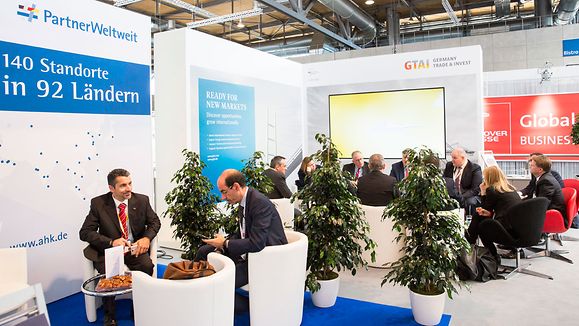German advertising market in 2023
Your company is already operating in Germany and you would now like to export worldwide?
Key Facts
Advertising Facts & Figures
Large and Affluent Market
Germany is the largest economy in Europe and the fourth largest market worldwide. The high purchasing power of German consumers provides an attractive target group for advertisers.
Digital transformation and High Internet Penetration
Germany has a high level of internet penetration with a large number of users who are regularly online. The digital transformation of companies and public services offers a wide range of potential applications for adtech solutions.
Strong Advertising Market
The German advertising market is one of the largest in Europe, with a high volume of spending on digital advertising. Companies in Germany are increasingly willing to invest in innovative advertising technologies in order to reach their target groups more effectively.
Consumer Behavior and Trends
German consumers are tech-savvy and open to new digital advertising formats. There is an increasing acceptance and widespread use of e-commerce and digital media that favors adtech solutions.
Opportunities
In 2022, Procter & Gamble Germany led in advertising spending with EUR 1.5 billion, followed by Ferrero, Lidl, Amazon, and Rewe respectively. Several of the world's top 100 most valuable brands are German – including SAP, Mercedes-Benz and Volkswagen, –and with substantial budgets to sustain their brand appeal. The top three verticals are grocery stores and supermarkets (EUR 2.6 billion), publishers and media (EUR 1.8 billion), and online services (EUR 1.4 billion). Germany is home to around 28,000 advertising agencies, with Hamburg being a major hub, hosting 16 of the 50 largest owner-managed agencies, followed by Munich.
Germany is an international adtech leader, with numerous top global companies based in the country. Companies like Adjust, Awin and Applift provide advanced tools to enhance marketing efficiency – from campaign impact measurement to user acquisition and retention. Berlin is the central hub for the adtech industry in Germany, offering a rich talent pool for these companies. The concentration of adtech firms in Germany facilitates the recruitment of skilled professionals.
GDPR as opportunity
The European Union's General Data Protection Regulation (GDPR) initially seemed like a challenge for advertisers but is proving beneficial. While it reduces the amount of data collected, the quality improves – leading to more relevant and targeted advertising. First-party data has become crucial, requiring companies to earn user consent by offering clear benefits. The GDPR compliance also gives European companies a competitive edge as global data protection laws tighten, thereby increasing demand for services that manage data according to these regulations.
Programmatic Everything
German media agencies have traditionally focused on television advertising – leading to slower adoption of new advertising methods like programmatic advertising. While 43 percent of agencies claim expertise in programmatic advertising, just 12 percent use it consistently in campaigns. Despite lower adoption rates compared to the US, there is strong interest among German brands in improving their use of programmatic technology. This creates significant opportunities for adtech companies offering programmatic solutions, especially in emerging areas like programmatic audio and out-of-home advertising, which are still underutilized in Germany.
Bastian Winterkemper, Head of Sales, DACH | Liftoff Mobile, Inc

“Liftoff is the leading mobile app marketing and retargeting platform. We chose to expand our business to Berlin as it offers a big pool of qualified talent in the AdTech scene which will help us to accelerate our growth and support even more marketers across Germany. With the expected overall growth of the market it just makes sense to have a permanent presence here.”
Business Environment
Advertising Industry Business Environment
Several legal regulations are important for companies active in the creative tech sector in Germany. Here are some of the most important ones.
General Data Protection Regulation (GDPR)
The GDPR regulates the handling of personal data and ensures that user privacy is protected. Companies must provide transparent information about data collection and processing and obtain user consent.
German Telemedia Act (TMG)
The TMG regulates the legal framework for electronic information and communication services. It contains provisions on the obligation to provide a legal notice, privacy policy and the responsibility of service providers.
German Act Against Unfair Competition (UWG)
The UWG protects consumers and competitors from unfair business practices. It contains provisions on misleading advertising, comparative advertising and aggressive business practices.
News
Germany's advertising industry presents a dynamic business environment with constantly emerging opportunities. Explore the exciting developments shaping the future of advertising in Germany.



